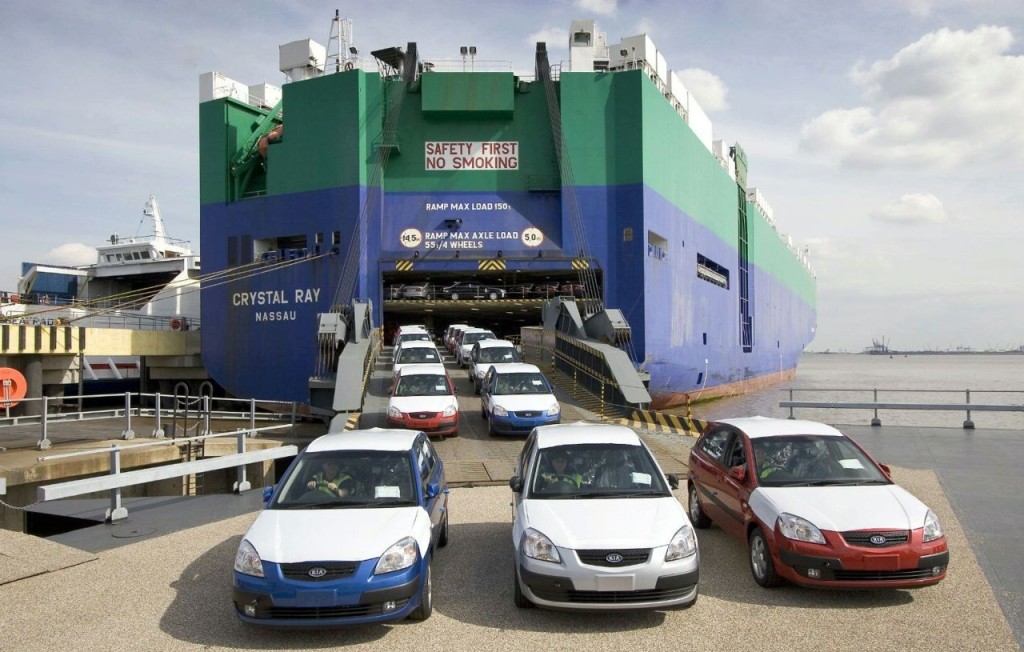4 Facts Professional Drivers Need to Know About Overseas Vehicle Transport
When it comes to overseas vehicle transport, there are a few things that professional drivers need to know. This is because the process is slightly different than transporting vehicles domestically. Here are four key facts that professional drivers should keep in mind when preparing to transport vehicles overseas.
1. Overseas Vehicle Transport Can Be More Expensive

While this can be an exciting and rewarding experience, there are some things you need to know before taking on such a job. One of the most important things to learn from auto transport companies is that overseas vehicle transport can be more expensive than shipping domestically. Here are some things professional drivers need to know about overseas vehicle transport costs:
The Distance Matters
When shipping a vehicle overseas, the distance it needs to travel will have a big impact on the price. Generally speaking, the further the distance, the higher the cost. This is because long-distance shipments require more time and effort to coordinate, which ultimately raises the price.
The Mode of Transport Matters
Another factor that can impact the cost of overseas vehicle transport is the mode of transport used. For example, shipping by sea is typically less expensive than shipping by air. This is because shipping by sea generally takes longer, which gives the transport company more time to complete the shipment.
The Size and Weight of the Vehicle Matter
The size and weight of the vehicle being shipped also play a role in determining the price. Heavier and larger vehicles will typically cost more to ship than smaller and lighter ones. This is because they require more fuel to move and may need special equipment to load and unload.
The Destination Country Matters
Finally, the destination country can also affect the cost of overseas vehicle transport. This is because some countries have more restrictions on imports than others. As a result, it may be more expensive to ship a vehicle to a country with stricter import regulations.
Keep these facts in mind when you are considering shipping a vehicle overseas. By understanding the factors that impact the cost, you can be sure to get the best price for your shipment.
2. The Process Takes Longer
Overseas vehicle transport is a complex process that necessarily takes longer than transporting a vehicle domestically. There are a number of factors that contribute to this, including the need to secure all the necessary paperwork and permits, arrange for shipping, and deal with potential delays along the way. Professional drivers need to be aware of this so that they can plan accordingly and ensure their customers are prepared for the longer timeline.
Here are four things you should keep in mind when making the journey:
- The process takes longer than domestic vehicle transport. Make sure you have the time to complete all the required paperwork and follow the proper procedures.
- You’ll need to obtain a customs bond. This ensures that any duties and taxes owed on the vehicle will be paid if it’s not delivered as agreed.
- You’ll also need insurance for the vehicle while it’s in transit. This will protect you in case of damage or theft.
- Be prepared for additional costs. These can include fees for storage, handling, and shipping.
Keep these facts in mind and you’ll be able to successfully transport your vehicle overseas.
3. Documentation Is Crucial
Another key factor to keep in mind when transporting vehicles overseas is the importance of documentation. This is because there are often a lot of forms and documents that need to be completed in order for the shipment to go smoothly. Professional drivers should make sure that they have all of the necessary paperwork in order before starting the shipping process.
Here are other things to keep in mind in preparing the documentation for overseas vehicle transport:
- Documentation is the most important part of overseas vehicle transport. Without the right paperwork, your shipment could be delayed or even rejected.
- Make sure you have all the required documents before you start the shipping process. A list of common documents can be found on most freight forwarders’ websites.
- Most countries have specific regulations for importing vehicles. Be sure to research the rules and requirements for your destination country before shipping your vehicle.
- Shipping companies typically offer two types of service for overseas vehicle transport: door-to-door and port-to-port. Door-to-door service is more convenient, but it may be more expensive. Port-to-port service is less expensive, but you will be responsible for getting your vehicle to and from the port.

Make sure you have all the required documents and research the specific regulations for your destination country before shipping your vehicle.
4. There Are Different Regulations
As pointed out earlier, it’s important to keep in mind that there are often different regulations governing overseas vehicle transport. This is because each country has its own rules and regulations regarding the import and export of vehicles. As such, professional drivers need to make sure that they are familiar with the regulations of the country or countries that they will be shipping to. Here are some things to keep in mind:
1. There are different regulations governing the transport of vehicles overseas from domestic ones. Professional drivers need to be aware of these differences in order to ensure that they are compliant with the law.
2. The most important difference is that vehicles being transported overseas must be insured for their full value. This is because the risk of loss or damage is much greater when transporting vehicles to another country.
3. Drivers also need to be familiar with the customs regulations of the country they are transporting the vehicle to. Failure to comply with these regulations could result in delays or even seizure of the vehicle.
4. Finally, professional drivers should always use a reputable and experienced shipping company when transporting vehicles overseas. This will help to ensure that the vehicle arrives safely and on time.
It is important to research the regulations that apply to the country of destination before planning an overseas trip. This will ensure that all necessary paperwork is in order and that the journey can be completed without any problems.
By keeping these four key facts in mind, professional drivers can ensure that they are prepared for the challenges of overseas vehicle transport. With a little bit of knowledge and planning, transporting vehicles internationally can be a smooth and successful process.














